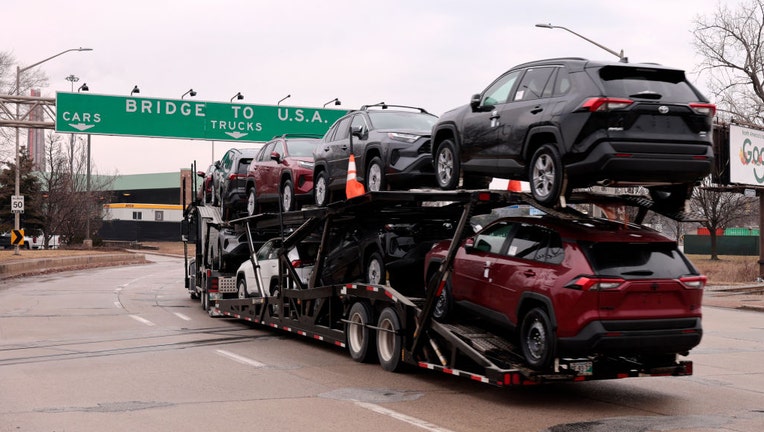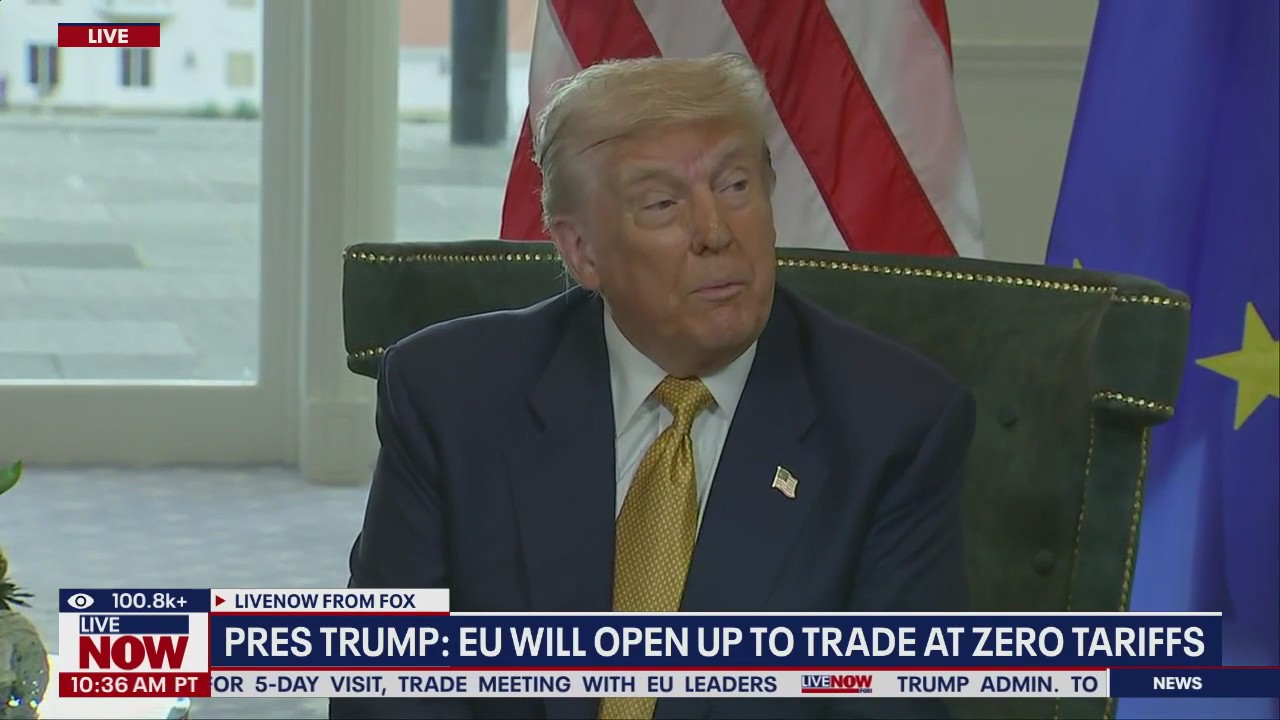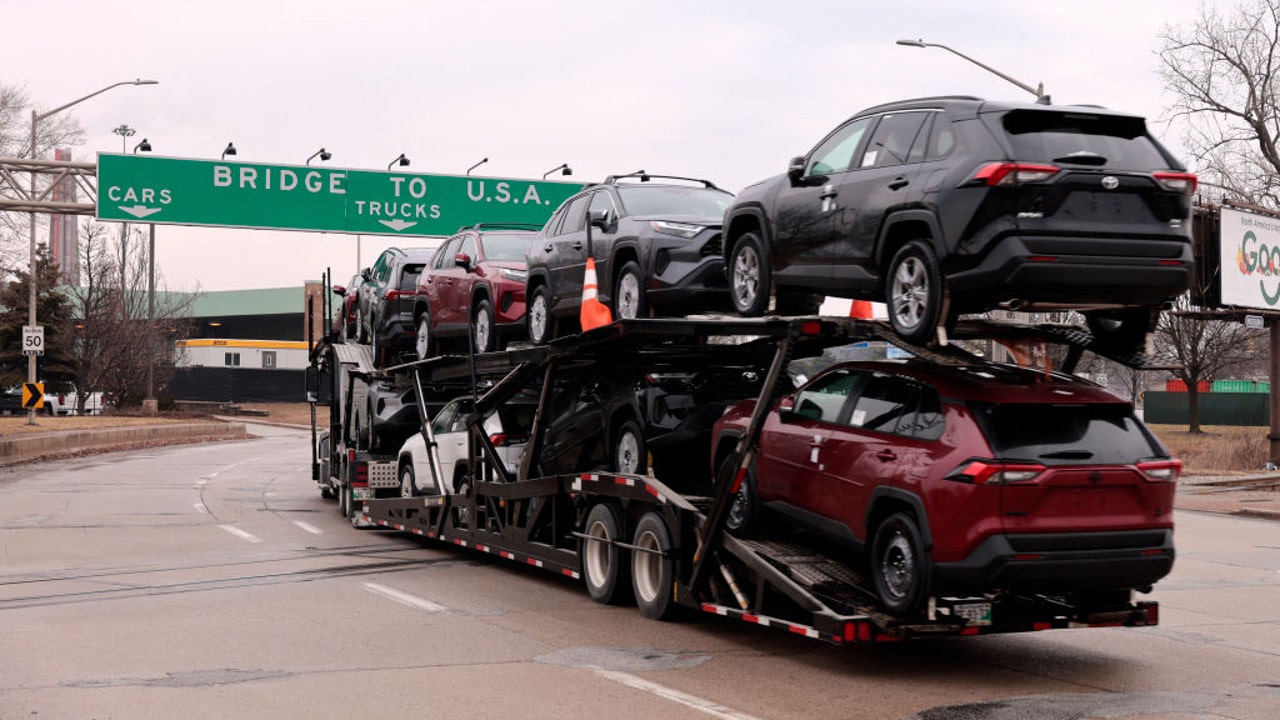 article
article
FILE-A car hauler carries Toyota RAV4 vehicles as it enters to cross the Ambassador Bridge in Windsor, Ontario to go to Detroit, Michigan on February 3, 2025. (Photo by JEFF KOWALSKY/AFP via Getty Images)
President Donald Trump and European Commission President Ursula von der Leyen announced a trade deal enforcing 15% tariffs on most European goods imported into the U.S.
The Associated Press reported that the tariff rate is lower than the 20% Trump first proposed, and lower than his previous tariff threats of 50% and then 30%.
What products will be more expensive under the U.S.-EU trade deal?
Why you should care:
The deal calls for a 15% tariff rate on “the vast majority” of European goods brought into the U.S., including cars, computer chips and pharmaceuticals.

The Associated Press reported that President Donald Trump said the 50% U.S. tariff on imported steel would stay in place, but Trump said pharmaceuticals were not included in the U.S.-EU trade deal, but European Commission President Ursula von der Leyen said pharmaceuticals are separate from Sunday’s deal.
RELATED: Trump announces trade deal with European Union
Under this tariff deal, car companies are expected to see higher prices. When asked if European automakers might still sell cars at 15%, von der Leyen told the Associated Press that the rate was lower than the 27.5% rate, which has been the rate under Trump’s 25% tariff on cars from all countries, including the preexisting U.S. car tariff of 2.5%.
According to the Associated Press, the tariffs on cars may be significant for some auto manufacturers since Volkswagen said it endured a $1.5 billion hit to its profits in the first part of 2025 due to higher tariffs.
Meanwhile, Mercedes-Benz dealers in the U.S. told the AP they are keeping their existing 2025 car model year prices “until further notice.”
Mercedes has slight tariff protection because it manufactures 35% of the cars sold in the U.S. in Tuscaloosa, Alabama, but the automaker explained to the AP that it expects prices to rise in the coming years.
Von der Leyen told the AP that the U.S. and European Union agreed on zero tariffs on a variety of “strategic goods” like aircraft and aircraft parts, semiconductor equipment, some agricultural products, certain chemicals, and some natural resources and raw materials.
The Source: Information for this story was provided by the Associated Press, which shares background on the U.S.-EU deal and the products that may change in price due to the tariffs. This story was reported from Washington, D.C.

